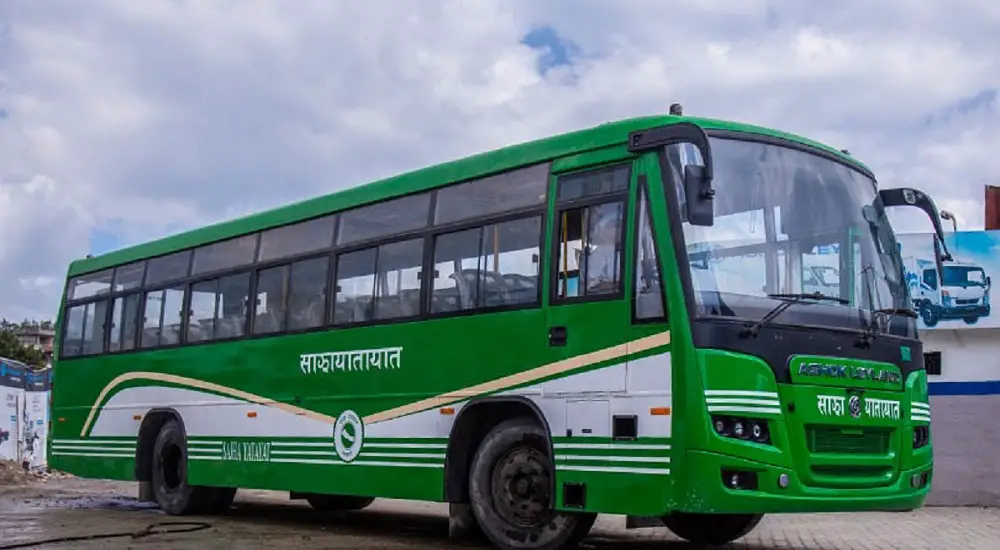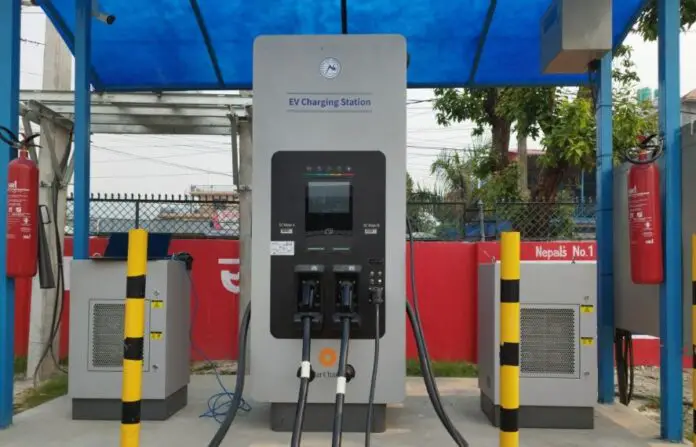Sajha Yatayat has started setting up 7 EV charging stations in Pulchowk. The necessary infrastructure construction has already begun and the station could be ready to operate by the end of Poush, 2080.
Last year, Sajha bought 40 electric buses for transport services in Kathmandu. However, due to the lack of charging stations, the operation has been affected. This is why the cooperative-run body is installing 40 electric vehicle chargers in Pulchowk.
Sajha Yatayat board of directors member Mahendra Pandey said that if work goes as planned, the charging stations will be ready by the end of Poush.
So far, 20 of the total 40 electric Sajha buses are plying the roads in various routes in Kathmandu. The buses get their power at the charging stations of Nepal Electricity Authority (NEA), 3 chargers in 3 and those others from NEA’s other stations.
Various EV operators install their own charging stations that fit different standards and protocols. This helps because the EVs and chargers are compatible with each other and help with faster charging. However, Sajha drew criticism for failing to operate all of its 40 electric vehicles and also for not installing its charging stations.
Also read: Taxes Revised on Electric Vehicles for FY 2080/81
Sajha Yatayat building 7 EV charging stations in Pulchowk
Earlier, Sajha knocked on the door of the PM’s office, the Infrastructure Development and Transport Ministry and others to provide land to build charging stations.
Sajha demanded around 3.77 acres (30 ropani) of land however, was denied for the lack of it. Check out: NEA inaugurates 51 Electric Charging Stations across Nepal

All 40 buses will come into operation
After the 7 charging stations become ready, Sajha will put all of its 40 electric buses into operation. The fully functional charging stations will be able to charge up to 17 buses simultaneously.
Sajha’s electric buses have a 26-seat capacity and are friendly for the physically impaired. The buses can run 200 kilometers on a single full charge.
As per the Sajha-CHTC deal, the latter will be responsible for five years of repair and maintenance. Sajha has spent around 45 crores on 40 electric buses and 20 charging stations.
Going electric is the current trend and more so in Kathmandu. However, the lack of charging stations has derailed their effectiveness. However, the initiatives from both government and private companies are now reversing the situation. Sajha’s 7 charging stations for its EVs will ease out its public transport operation in Kathmandu and help it operate all 40 buses smoothly.



